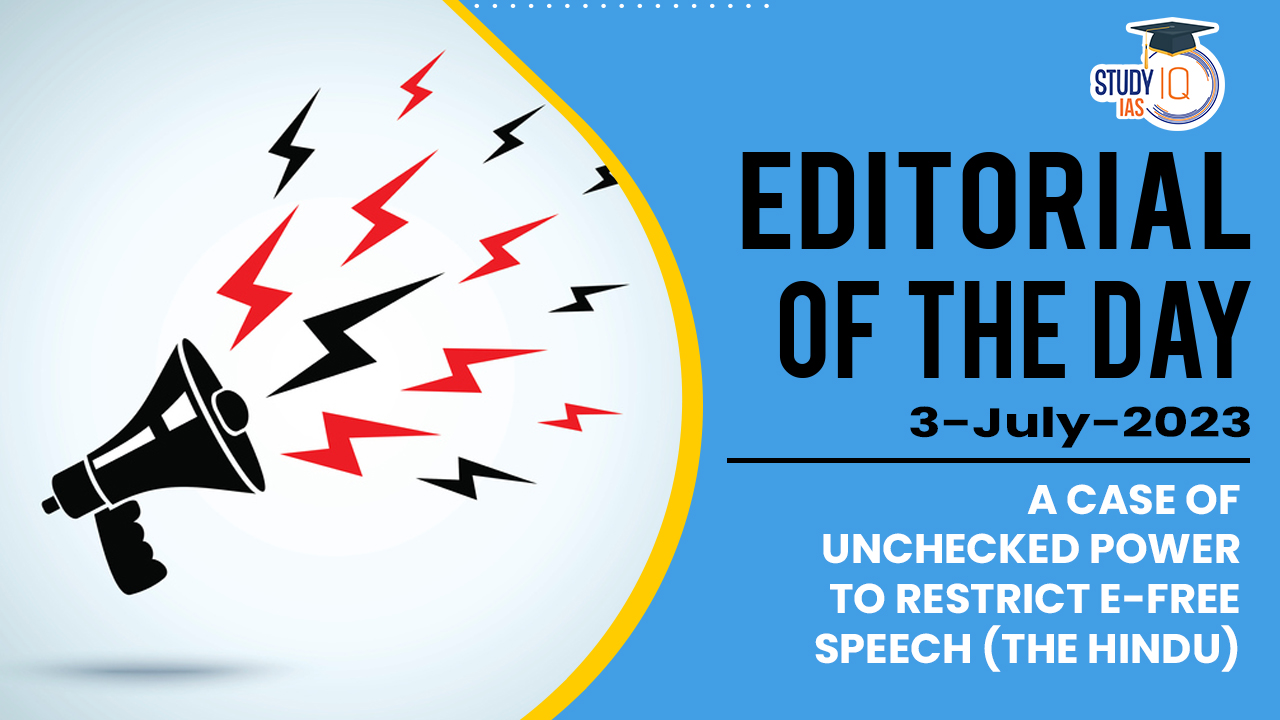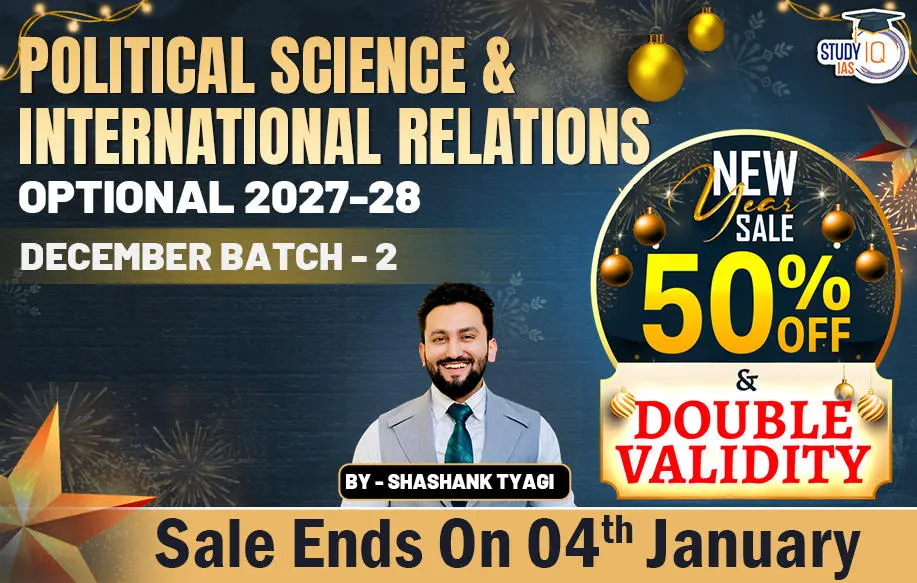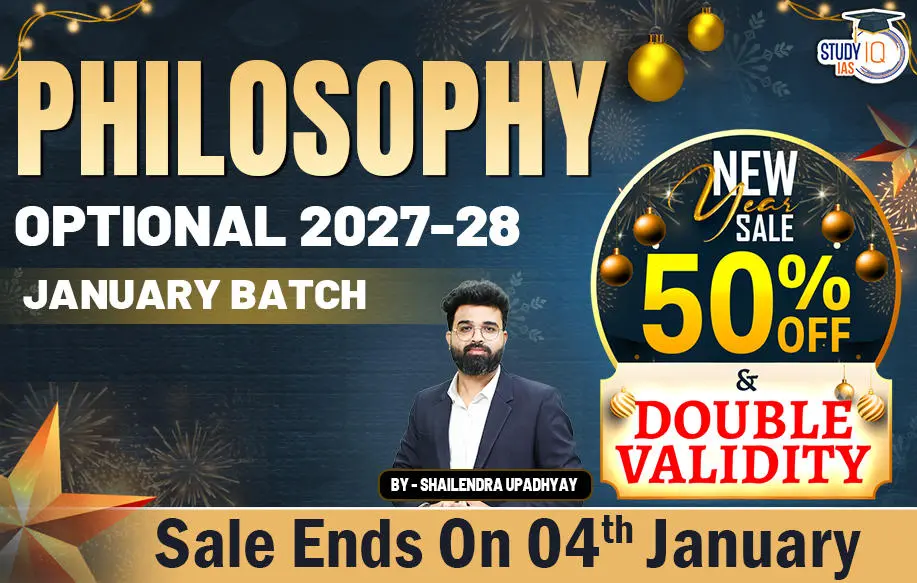Table of Contents
Context: The article is discussing a recent judgement by the Karnataka High Court regarding Twitter’s challenge to blocking orders issued by the Ministry of Electronics and Information Technology (MeitY). The court dismissed Twitter’s challenge and criticised the company for not complying with the orders. As a consequence, the court imposed a fine of ₹50 lakh (INR) on Twitter. The article argues that this judgement undermines the right to free speech and expression. It believes that the court’s judgement allows the state to exercise unchecked power in taking down content without following proper procedures. The article suggests that this judgement establishes a concerning trend of hindering digital rights and free speech under the pretext of combating the dissemination of false information.
Decoding the Editorial
The article is highlighting several concerns and contradictions in the Karnataka High Court’s judgement regarding the procedural safeguards associated with blocking orders under Section 69A of the Information Technology Act, 2000.
Arguments of the Author:
- The author points out that the Supreme Court of India, in the Shreya Singhal vs Union of India case, upheld the constitutionality of Section 69A and the Blocking Rules, emphasising the importance of procedural safeguards such as recording a reasoned order and providing notice to the intermediary and the originator of the content to be blocked.
- However, the recent Karnataka High Court’s judgement deviates from this precedent.
- It suggests that notice to users of the content is not mandatory, and even if reasons for blocking are recorded, they may not be conveyed to the user.
- This lack of procedural safeguards allows restrictions on free speech to be imposed without oversight or recourse for affected entities to challenge them.
- Furthermore, the High Court’s observation that users of Twitter have access to appropriate remedies and that claims of blocked users cannot be espoused by Twitter is criticised.
- The author mentions that a human rights activist and author, Aakar Patel, whose Twitter account was blocked, had filed an application to intervene in the case, but it was refused by the High Court.
- This challenges the High Court’s assertion that none of the affected users had approached the court.
- The author also highlights the practical difficulties in obtaining blocking orders and accessing information under the Blocking Rules.
- They point out that the Ministry of Electronics and Information Technology (MeitY) often cites confidentiality requirements to deny blocking orders to originators of content, making it challenging to obtain such orders even through the Right to Information process.
- The author also mentions that blocking orders being provided to the High Court in sealed covers shows that there is a lack of transparency in the process, further raising concerns about the exercise of state power without sufficient accountability.
- The author asserts that restrictions on freedom of speech can only be imposed based on the grounds enumerated in Article 19(2) of the Constitution. However, the High Court’s judgement reveals that one of the reasons for blocking content was the potential spread of “fake news” and “misinformation,” which could disturb public order and threaten the security of the state.
- The author argues that misinformation and fake news are not valid grounds for restricting free speech under Article 19(2) and Section 69A.
- The author points out that for speech to be considered prejudicial to public order, there must be a direct link between the speech and the potential threat, which the High Court failed to establish.
- The article also criticises the increasing trend of using the dissemination of false information as a basis to restrict digital rights and free speech.
- The author mentions disproportionate internet shutdown orders in Manipur as an example. Also, it is observed that Using the rhetoric of “fake news” to restrict fundamental rights is reminiscent of invoking national security to justify excessive and arbitrary laws.
- The wholesale blocking of Twitter accounts is seen as prior restraint on freedom of speech, which is considered unconstitutional.
- The author refers to a Supreme Court case, Brij Bhushan and Another vs The State of Delhi, where it was held that pre-censorship on freedom of speech is not permissible.
- The disproportionate and broad blocking of accounts can create a chilling effect on the freedom of speech of online platform users.
Conclusion
The author concludes that the Karnataka High Court’s judgement undermines procedural safeguards, erodes the principles of natural justice, and grants unchecked power to the state to remove any content it deems unfavourable. He ends by suggesting that this, along with the recently amended IT Rules on fact-checking, poses a dangerous threat to freedom of speech.


 National Technology Readiness Assessment...
National Technology Readiness Assessment...
 Justice Mission-2025: China’s Live-Fir...
Justice Mission-2025: China’s Live-Fir...
 Suryastra: First Made-in-India Long-Rang...
Suryastra: First Made-in-India Long-Rang...

























